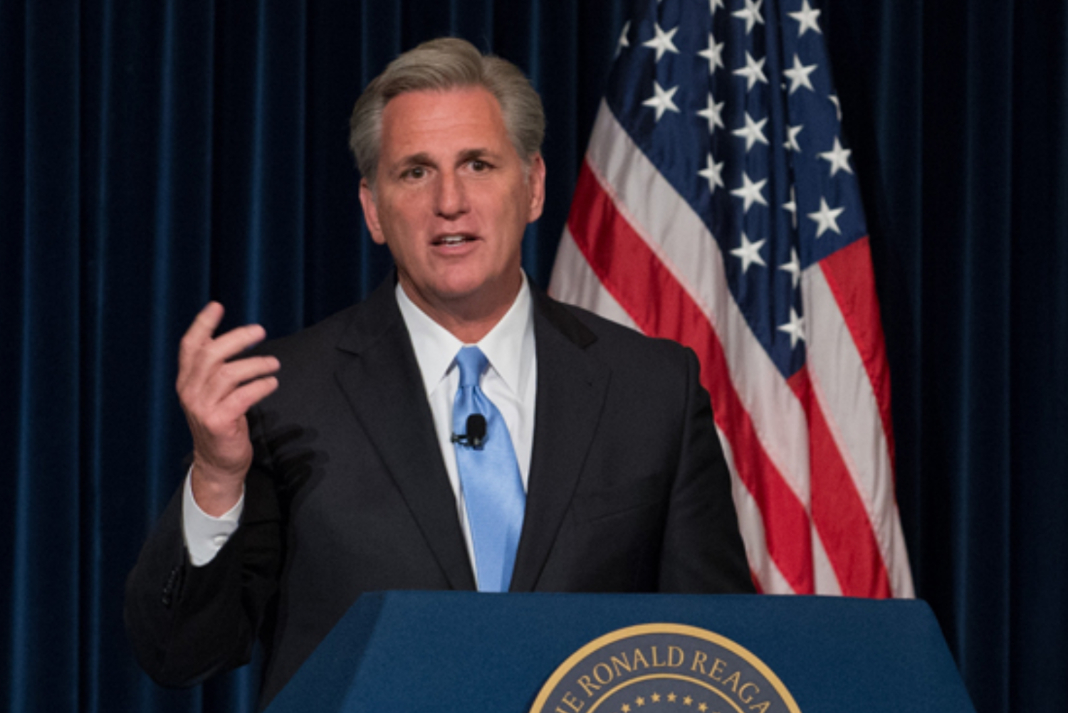This post originally appeared at https://www.wisconsinrightnow.com/republican-debt-ceiling-plan/

U.S. House Speaker Kevin McCarthy, R-Calif., said Monday Republicans will vote to cut federal spending when it agrees to raise the debt ceiling, setting the stage for a pending political struggle over growing federal debt and what to do about it.
“OK, so here’s our plan,” McCarthy said at the New York Stock Exchange Institute Monday. “In the coming weeks, the House will vote on a bill to lift the debt ceiling into the next year, save taxpayers trillions of dollars, make us less dependant on China, curve our high inflation, all without touching Social Security and Medicare.”
U.S. Treasury Secretary Janet Yellen has warned lawmakers that they face a looming deadline: raise the debt limit or face defaulting on U.S.’ debt obligations, an unprecedented failure that would have major consequences for the global and U.S. economy.
McCarthy did not release all the details of the plan, which is likely to be tweaked in Republican discussions over the coming weeks, but did emphasize cutting spending.
“First we’ll limit federal spending,” McCarthy said. “Our legislation accomplishes the same goal by returning the federal government to 2022 levels, and then limit the growth to spending over the next 10 years to 1% of annual growth.”
McCarthy also called for examining federal waste and overreach before borrowing more money and becoming more competitive with China.
McCarthy expressed confidence in passing a debt limit increase, but so far there has been little evidence of Biden and Republicans coming to an agreement to move forward. McCarthy recently met with Biden at the White House, but a deal has not been reached.
Experts have also expressed concerns about the growth of federal debt. The U.S. Congressional Budget Office, the official budget analysis group for Congress, said in February that debt is growing faster than expected.
As The Center Square previously reported, CBO projects the deficit will nearly double in the next decade, reaching $2.9 trillion by 2033. The annual deficit for the next decade will average $2 trillion.
According to the analysis, federal debt held by the public will rise “from $24.3 trillion at the end of 2022 to $46.4 trillion at the end of 2033.”
“As a percentage of GDP, that debt is projected to stand at 118 percent at the end of 2033 – about 21 percentage points higher than it was at the end of 2022 and about two and a half times its average over the past 50 years,” CBO said.
In his speech Monday, McCarthy called for restoring work requirements for government benefits to coax able-bodied adults without dependents back into the workforce.
“Right now there are more job openings than people looking for jobs,” McCarthy said. “You know why? It’s in part because the Biden administration weakened work requirements.”
McCarthy also put the delay in making a deal at the feet of Biden.
“Make no mistake,” McCarthy said. “The longer President Biden waits to be sensible, to find agreement, the more likely it becomes that his administration will bumble into the first default in our nation’s history.”
Biden has said the debt ceiling is too serious to negotiate around and has called for simply raising it.
“But I will not let anyone use the full faith and credit of the United States as a bargaining chip,” Biden said during a Virginia speech earlier this year.
Casey Harper
Go to Source
Reposted with permission